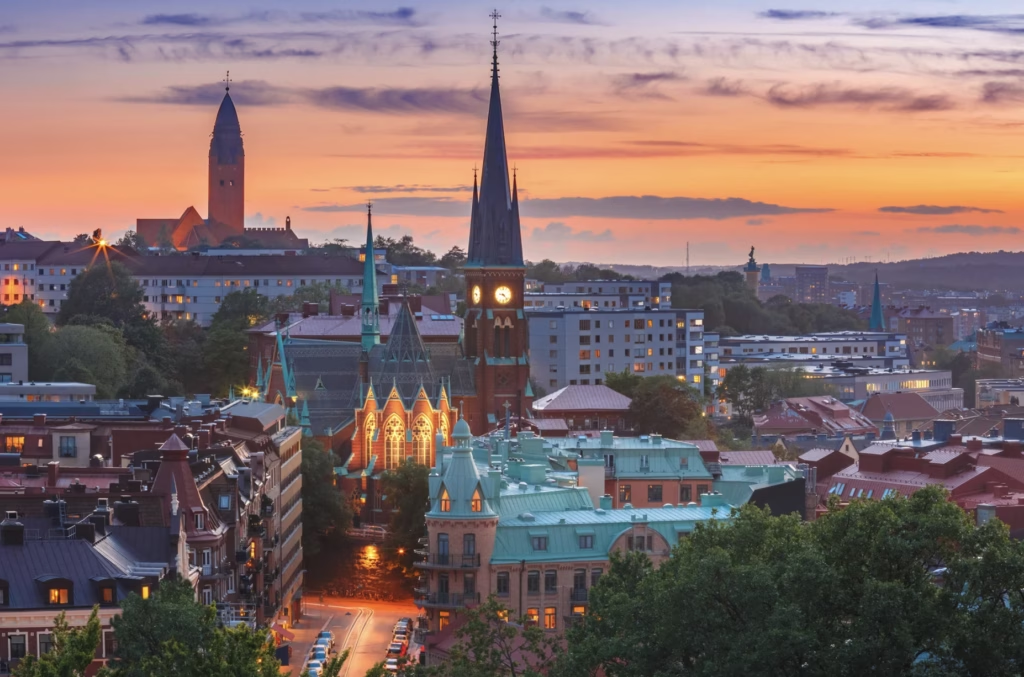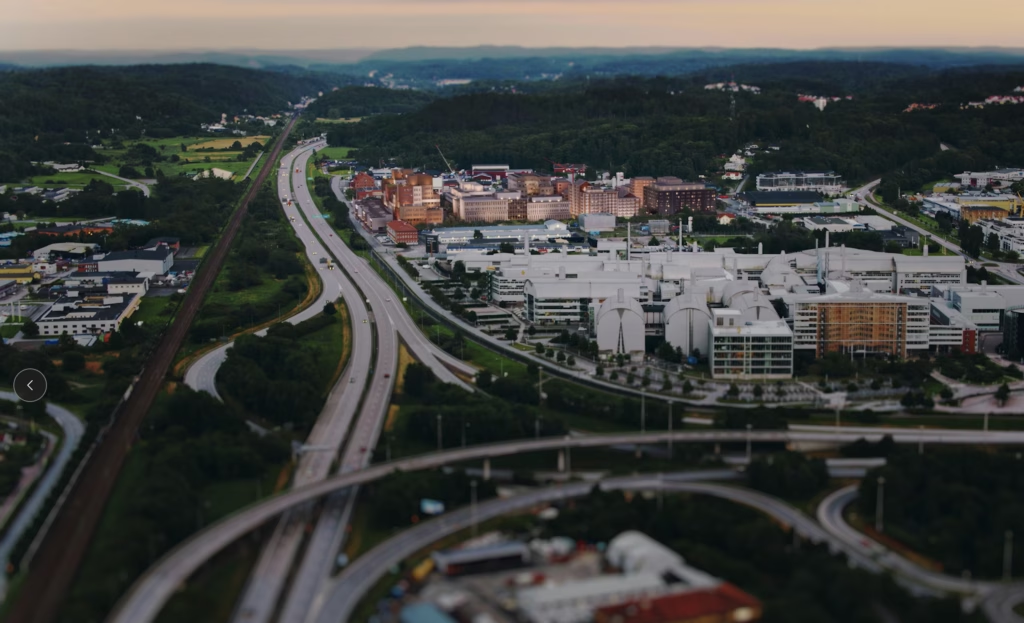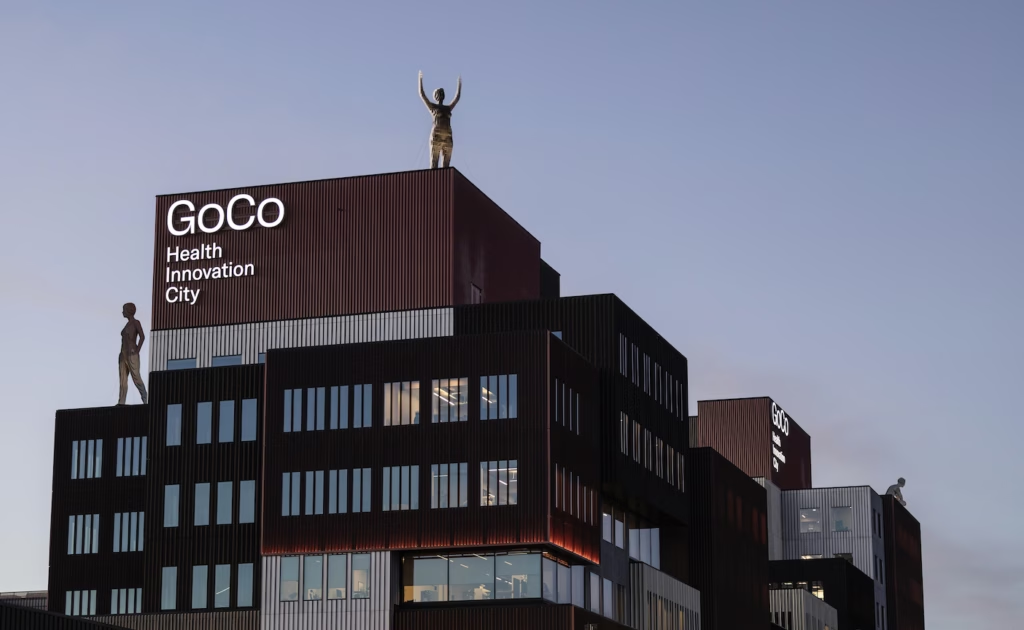Why Gothenburg is the Go-To for Global Biotech Innovation
By Daniel Gooch, Scius Communications

In Gothenburg, sometimes nicknamed Little London, due in part to its glorious pubs,there’s a lot going on in life sciences. There are over 600 companies, and 10,000 employees, in a place the locals like to call, ‘the Nordic capital of getting things done.’ And there’s a lot of people doing just that, every day, with over 60,000 people in West Sweden professionally engaged in promoting health and well-being.
Sweden is an important location for the global life sciences sector, and is the Nordics largest healthcare market, with a population of 10.5 million. Gothenburg, on Sweden’s stunning west coast, with its magical archipelago islands, Dutch-style canals and leafy boulevards, is a buzzing biotech hub, home to one of AstraZeneca’s strategic R&D centers, with around 3,000 employees. It also houses the world-class Sahlgrenska University Hospital which, last year alone, did 14.4 million lab tests, 66,000 operations, and over 350 organ transplantations.
Next to the hospital, on the ‘medicine mountain’ (Medicinareberget), is another essential component of the life sciences ecosystem in Gothenburg; the Sahlgrenska Science Park, which is dedicated to accelerating health innovation and supports many biotech & medtech companies. The ‘getting things done’ hub is a real hive of activity, as there’s also CCRM Nordic who are working hard to construct a huge new building to put Sweden firmly on the map for advanced therapy innovation, and accelerating the transition of cell & gene therapies from lab to patient. Topping it all are impressive financial stats: the top ten life science companies in the Gothenburg region each have a turnover of at least EUR 86 million (SEK 1 billion).
Home to medical breakthroughs
With its heritage of pharma & hospital excellence it should come as no surprise that Sweden’s second city is renowned for medical breakthroughs. Gothenburg is a leading center for clinical research: the city can claim a Nobel Prize for Medicine, awarded to Professor Arvid Carlsson, for discoveries concerning neurotransmitters in the nervous system and its effect on Parkinson’s disease, which is the second most common primary neurodegenerative disease after Alzheimer’s disease, and for which there’s sadly no treatment. At IRLAB, spun out from Professor Carlsson’s research group, they are developing a disruptive technology platform called ISP to discover new drug candidates for use as therapeutics in central nervous system disorders.
In a city which delivered the first successful pregnancy from a transplanted uterus, Vitrolife, working in fertility treatments, is now a global company with its HQ in Gothenburg, and a shining example of Swedish success.The Gothia Forum is on a mission to develop clinical research in the region of Västra Götaland. The city’s two big universities, Gothenburg University and Chalmers University, have leading Nordic venture funds, GU Ventures and Chalmers Ventures respectively, that have supported a wealth of biotech and deeptech start-ups. Collectively, the cluster is integrating advanced technology to create a more efficient and personalized healthcare system.
This makes Gothenburg an outstanding choice for hosting this year’s Nordic Life Sciences Days (register here), the largest Nordic partnering event for the life science industry. The event, held over 12 to 14 October, provides a carefully curated two-day conference program that covers emerging developments in the sector using a variety of engaging session formats, including the highly popular Supersessions on hot topics.

Where culture meets collaboration
As well as Supersessions on metabolic medicine, TechBio, neuroscience, and financing, a new topic this year is, ‘Culture as a competitive advantage: A Nordic Perspective’, where the panel will discuss how cultural strengths can translate into global business success. In the Nordic ecosystem, culture isn’t just an internal value: it’s a strategic force. Join the session to explore how the region’s four principles of trust, equality, sustainability, and collaboration, help to foster innovation, attract international talent, and build resilient organizations.
On collaboration, an everyday saying is, ‘many hands make light work.’ In Gothenburg, you could say they’ve been morphing that ancient phrase into something for modern times, making use of the concept of ‘sector convergence’, where many different hands are making the future work. Many growth companies in the city owe their founding ‘spark’ to unexpected encounters between different disciplines, which the city has long been facilitating with its strong tradition of open collaboration, across industries including tech, and automotive, as well as life sciences. Know-how from one sector creatively cross-fertilizes another, especially in areas such as advanced machine learning, big data and AI. For example, Volvo Cars and AstraZeneca are exploring how cars could be used to collect health data and analyze how we feel. Could Gothenburg be where a whole new ‘car-maceutical’ industry is born?
Beating the bugs & better biomanufacturing
Another local specialty is infection control, with over 60 companies active in the area, creating outstanding innovative research, and with close collaborations in areas including wound care and antibiotic resistance. Gothenburg has been finding better ways to beat bugs for decades: the world’s first effective drinkable cholera vaccine, Dukoral, was developed at the city’s University, way back in the 1980s. Sector convergence is in play here too, at the interface of infection control and material sciences, as Abigo Medical AB, acquired by Essity a few years ago, has developed advanced wound care products, sold around the world, that have a special surface layer that binds, and neutralizes, bacteria. Also addressing wound care innovation is world-leading MedTech Mölnlycke Healthcare, one of Sweden’s biggest private companies. The company’s products & solutions are used daily by hospitals, healthcare providers, and patient all around the world.
In biotech, manufacturing of biologics can be hard, and that’s another area where Gothenburg has some transformational innovations going for it. For example, at Nyctea Technologies, the company’s vision is to create a world with affordable medicine by turning breakthrough materials innovations into cutting-edge purification solutions for biomanufacturing. By providing a gentler purification, there’s a higher yield, and a win for the environment too: a significant reduction in water use.

Living life to the full
Gothenburg’s life sciences system is growing strongly, and there’s substantial support for companies looking for Little London to make them a lot bigger. The new urban city center, GoCo Health Innovation City, beside AstraZeneca’s R&D site, has over 200,000 square meters developed to attract researchers, entrepreneurs, and talent from around the world. In the suburb of Mölndal, the vision is to create a world-class innovation cluster for health, and, leaning well into ‘sector convergence’, collaboration is built into the core. It is the home of Cereno Scientific, which is pioneering treatments to enhance and extend life, with an innovative pipeline of disease-modifying drug candidates in rare cardiovascular and pulmonary diseases. The company is all about helping people live life to the full, which is precisely what Gothenburg does for companies: help them to live their commercial life to the full.
Want to find out more about why Gothenburg is the global go-to for life science? Go to Invest in Gothenburg for a wealth of information in the Nordic capital of getting things done. Materials best read while eating freshly caught seafood, and enjoying Spike Brewery’s magnificent craft beer the ‘Fango Mandango’, in one of the city’s very fine English-style pubs, check here for details. Finally, to live life until you are full, you need this gorgeous guide to gastronomic Gothenburg. Smaklig måltid!
Experience Gothenburg’s life sciences by registering here for Nordic Life Science Days.